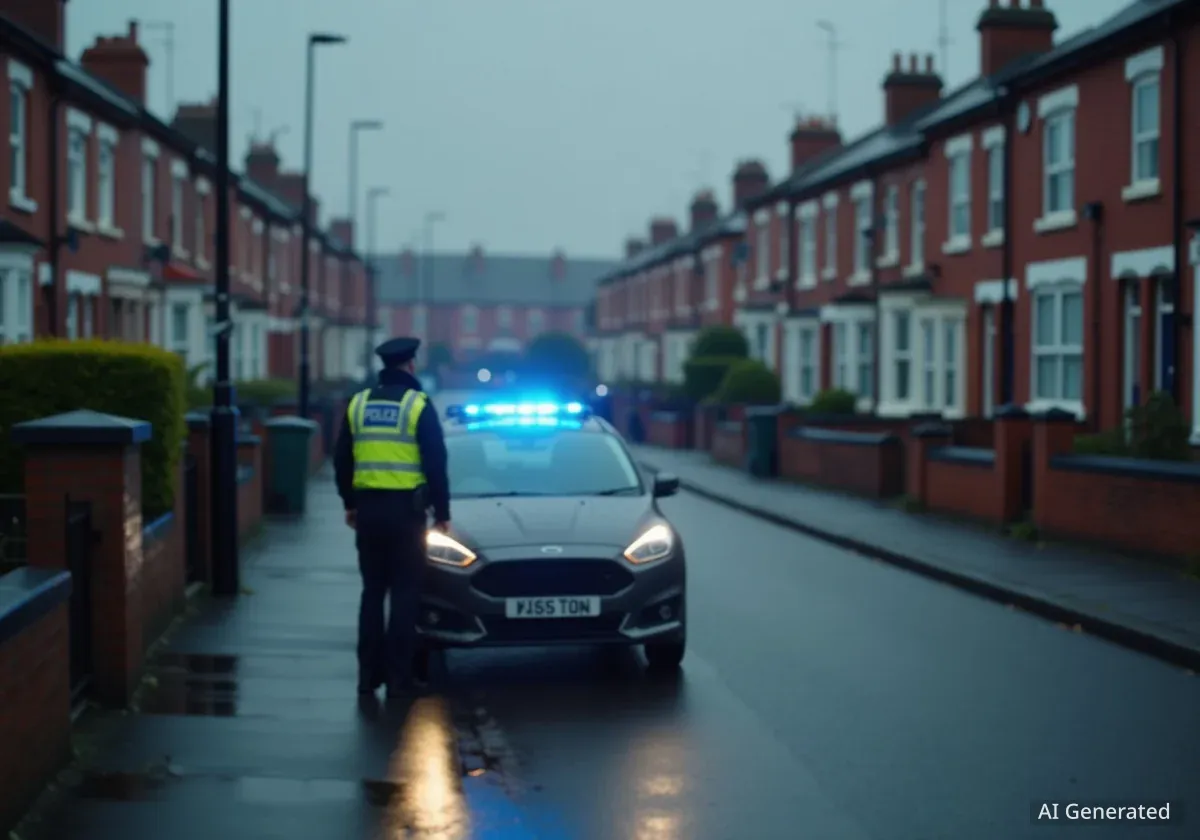Sefton Council and Merseyside Police have issued a stern warning regarding the use of paramotors along the region's coastline, including Crosby beach. The authorities have highlighted significant public safety risks and environmental concerns, reminding pilots that such flights are prohibited under local and national regulations.
The joint alert follows several reports of paramotors, which are powered paragliders, flying dangerously low over popular areas like Burbo Bank, causing alarm among families and beachgoers. Officials have confirmed that legal action will be pursued against individuals who violate the existing flight restrictions.
Key Takeaways
- Sefton Council prohibits paramotor flights along its entire coastline under a Public Spaces Protection Order (PSPO).
- Merseyside Police have received multiple reports of pilots flying dangerously low over families at Crosby beach and Burbo Bank.
- The coastline is a protected Site of Special Scientific Interest (SSSI), and powered flights can disturb sensitive wildlife.
- The Civil Aviation Authority (CAA) classifies the area as "congested," meaning take-off and landing require special permission.
- Authorities have cited a fatal paramotor crash in 2019 as a stark reminder of the potential dangers.
Official Warnings Over Unauthorised Flights
Sefton Council has reiterated its stance on powered aerial vehicles, emphasizing its duty to protect the public and the unique coastal environment. The council confirmed that a Coastal and Visitor Area Public Spaces Protection Order (PSPO) is active across the entire Sefton coastline. This order explicitly forbids the use of powered flight, including paramotors and self-propelled paragliders, in any restricted zone without prior written consent from the council.
This official reminder was prompted by a recent increase in sightings at Crosby beach and surrounding areas. The council's guidance underscores the potential for serious accidents, referencing a tragic incident in 2019 where an experienced pilot, Andy Walkden, died after his paramotor crashed in Birkdale. This event serves as a critical reminder of the inherent risks associated with the activity, even for seasoned pilots.
Police Response to Public Safety Concerns
Merseyside Police have also taken a firm position after receiving numerous complaints from the public. Reports indicated that pilots were using a field near the coastguard station at Burbo Bank for take-offs and landings. Eyewitnesses described the aircraft flying at extremely low altitudes, posing a direct risk to people on the ground, including young children.
Chief Inspector Rob Budden addressed the issue directly, highlighting the public's sense of unease caused by this activity.
"We’ve received multiple reports in recent weeks of pilots using the busy area of Burbo Bank to take off, land and fly extremely low to the ground. This has caused members of the public, including families with young children, to feel unsafe. This is a very popular spot for families to visit and we are urging pilots to stop this dangerous behaviour."
He concluded with a clear message that the matter is being treated with utmost seriousness and that enforcement action is planned. "Legal action will be pursued against those responsible," he stated.
Legal and Environmental Protections Explained
The restrictions on paramotor flights in Sefton are based on a combination of local bylaws and national aviation law. Understanding these regulations is crucial for anyone considering operating an aircraft in the area.
What is a Paramotor?
A paramotor, also known as a powered paraglider, is a type of aircraft consisting of a paragliding wing, a harness, and a backpack-mounted engine with a propeller. The Civil Aviation Authority (CAA) legally classifies them as aircraft, meaning pilots are required to comply with all relevant aviation laws, including the Air Navigation Order.
The primary local regulation is the PSPO, which gives the council authority to ban specific activities in designated public spaces to prevent anti-social behaviour or ensure public safety. In this case, it covers the entire coastline managed by Sefton Council.
Furthermore, the Civil Aviation Authority has identified the Sefton coastline as a "congested area" under the Air Navigation Order. This classification imposes stricter rules, prohibiting pilots from taking off or landing without express permission from the CAA itself. This is in addition to needing permission from the landowner for any take-off or landing, even outside restricted zones.
Protecting a Site of Special Scientific Interest
Beyond the immediate risk to human life, the paramotor flights pose a significant threat to the local ecosystem. The Sefton coastline holds the status of a Site of Special Scientific Interest (SSSI), a designation that recognizes its national importance for wildlife and geology.
The SSSI designation means Sefton Council has an increased legal responsibility to protect the unique habitats and the species that depend on them. This protection extends to preventing disturbances from vehicles, including powered aerial craft like paramotors, which can disrupt nesting birds and other sensitive wildlife.
The noise and movement from low-flying paramotors can cause significant stress to bird populations, particularly during breeding seasons. This disturbance is a direct violation of the principles that govern the management of SSSI sites, compelling the council to enforce the ban strictly to fulfill its conservation duties.
Summary of Regulations for Pilots
For clarity, authorities have outlined the key rules that apply to any potential paramotor activity along the Merseyside coast. Pilots must adhere to a multi-layered system of permissions and laws.
- PSPO Prohibition: The use of any powered flight is banned along the Sefton coastline without written approval from Sefton Council.
- CAA Congested Area: Pilots cannot take off or land without specific permission from the Civil Aviation Authority.
- Landowner Permission: Even in areas not covered by the PSPO, pilots must always secure permission from the landowner before taking off or landing.
- Aviation Law: All pilots must comply with the Air Navigation Order and other CAA regulations at all times.
The combined warnings from Sefton Council and Merseyside Police send a clear message: the illegal and dangerous use of paramotors will not be tolerated. Residents are encouraged to report any sightings of such activity to the police to help ensure the safety of the public and the protection of the coastline's precious natural environment.





